While not all of these films were able to win as many prestigious prizes as the nominations would have you believe, they are still easily considered some of the most iconic and greatest films of all time. It is also worth noting that other notable films, such as Schindler's List, Gladiator, The Revenant, and A Streetcar Named Desire are among those that have received 12 nominations but have not been included in the list.
17 'On the Waterfront' (1954)
12 Nominations (and 8 Wins)
Best Picture | Sam Spiegel |
Best Actor | Marlon Brando |
Best Supporting Actor | Lee J. Cobb |
Best Supporting Actor | Karl Malden |
Best Supporting Actor | Rod Steiger |
Best Supporting Actress | Eva Marie Saint |
Best Director | Elia Kazan |
Best Original Screenplay | Budd Schulberg |
Best Cinematography, Black-and-White | Boris Kaufman |
Best Art Direction-Set Decoration, Black-and-White | Richard Day |
Best Film Editing | Gene Milford |
Best Music, Scoring of a Dramatic or Comedy Picture | Leonard Bernstein |
 Image via Columbia Pictures
Image via Columbia Pictures Largely beloved and considered to be one of the defining films of the 50s, On the Waterfront is a masterful crime drama that still holds up brilliantly in the modern era, making waves when it was first released and being a hit at the Academy Awards. The film follows Terry Malloy (Marlon Brando), a kindhearted dockworker who wants to escape the harsh life of crime that he's been wrapped up in, made worse when he witnesses the death of a friend. After falling in love with the friend's sister, Terry attempts to do what he can to leave his life on the waterfront and expose his corrupt employers in the process.
On the Waterfront is one of the most influential and iconic crime dramas of all time, with its legacy and strengths still being felt in film today. It's no wonder that the film had such an impact at the Academy Awards, not only taking home the big prize of Best Picture, but also taking home awards for Best Director, Best Cinematography, Best Editing, and Best Supporting Actress. The most notable win, however, is Brando's win for Best Actor for his portrayal of Terry Malloy, a performance that is still in conversation as one of the greatest performances of all time.
On The Waterfront
Release Date July 28, 1954
Director Elia Kazan
Runtime 108 minutes
16 'The English Patient' (1996)
12 Nominations (and 9 Wins)
Best Picture | Saul Zaentz |
Best Actor | Ralph Fiennes |
Best Actress | Kristin Scott Thomas |
Best Supporting Actress | Juliette Binoche |
Best Director | Anthony Minghella |
Best Adapted Screenplay | Anthony Minghella |
Best Cinematography | John Seale |
Best Art Direction-Set Decoration | Stuart Craig, Stephenie McMillan |
Best Costume Design | Ann Roth |
Best Sound | Walter Murch, Mark Berger, David Parker, Christopher Newman |
Best Film Editing | Walter Murch |
Best Music, Original Dramatic Score | Gabriel Yared |
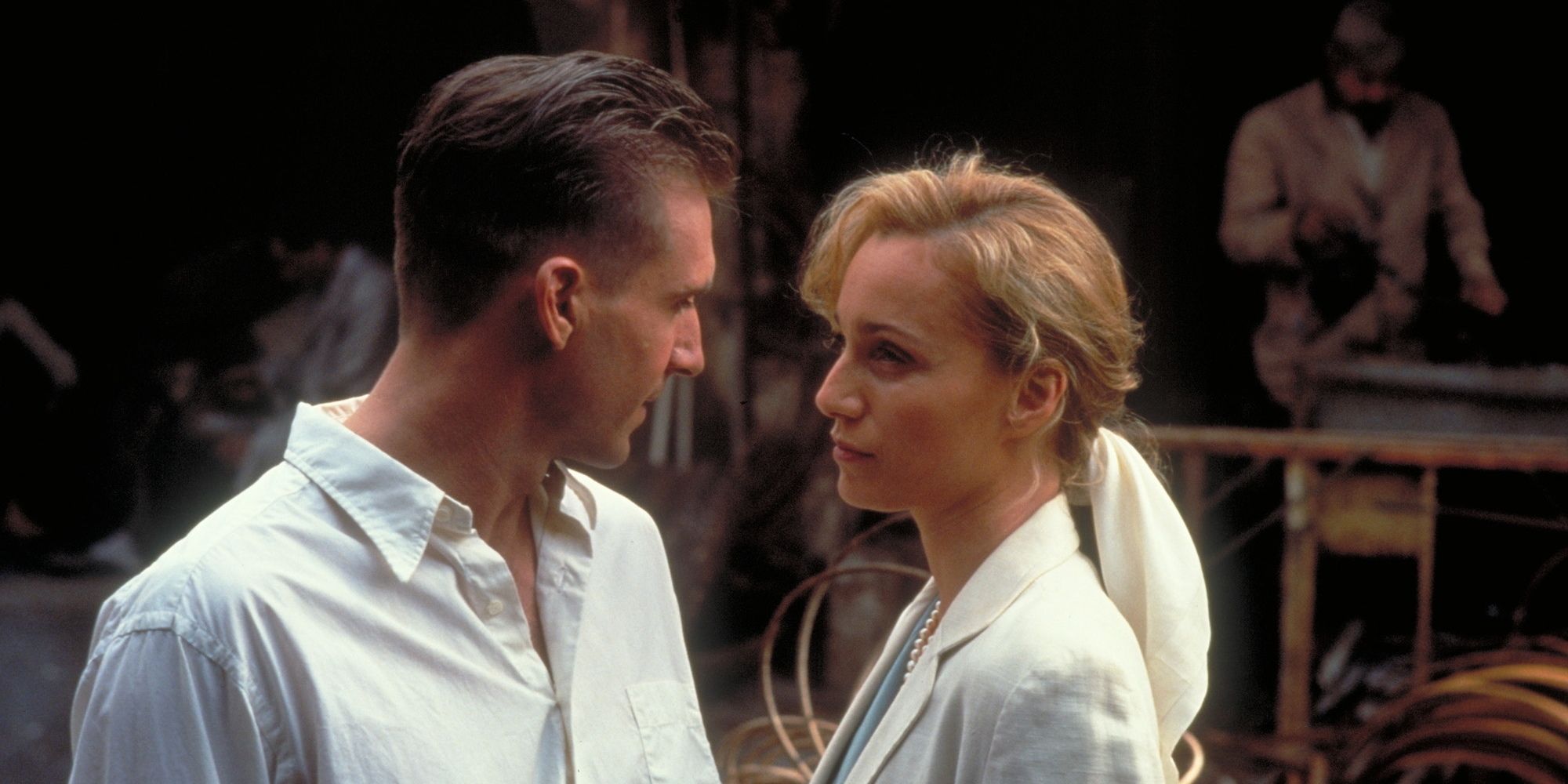 Image via Miramax
Image via Miramax While the film has largely been forgotten by general audiences in the nearly 30 years since its release, The English Patient made a massive splash at the 69th Academy Awards, beating out the likes of Fargo and Jerry Maguire to win Best Picture. The film follows Hungarian map maker Count Almásy (Ralph Fiennes) on his assigned quest to chart the vast expanses of the Sahara Desert in the 1930s. However, the dangers and rise of World War II prove to throw Almásy into a world of danger, betrayal, and unexpected love.
The English Patient is emblematic and all-encompassing of a lot of the same conventions and trends that largely defined the most successful and Oscar-bait-y films of the late 20th century, making it far from shocking that the film found such massive success. While aspects of the film may not have aged the best in the decades since its release, it's undeniable how much of an impact that The English Patient had on the academy when it released, helping it win Best Picture on top of Best Director, Best Supporting Actress, and Best Cinematography.
Release Date December 6, 1996
Director Anthony Minghella
Runtime 162 Minutes
15 'Ben-Hur' (1959)
12 Nominations (and 11 Wins)
Best Picture | Sam Zimbalist |
Best Actor | Charlton Heston |
Best Supporting Actor | Hugh Griffith |
Best Director | William Wyler |
Best Adapted Screenplay | Karl Tunberg |
Best Cinematography, Color | Robert Surtees |
Best Art Direction-Set Decoration, Color | William A. Horning, Edward C. Carfagno, Hugh Hunt |
Best Costume Design, Color | Elizabeth Haffenden |
Best Sound | Franklin Milton |
Best Film Editing | Ralph E. Winters, John D. Dunning |
Best Effects, Special Effects | A. Arnold Gillespie, R.A. MacDonald, Milo B. Lory |
Best Music, Scoring of a Dramatic or Comedy Picture | Miklós Rózsa |
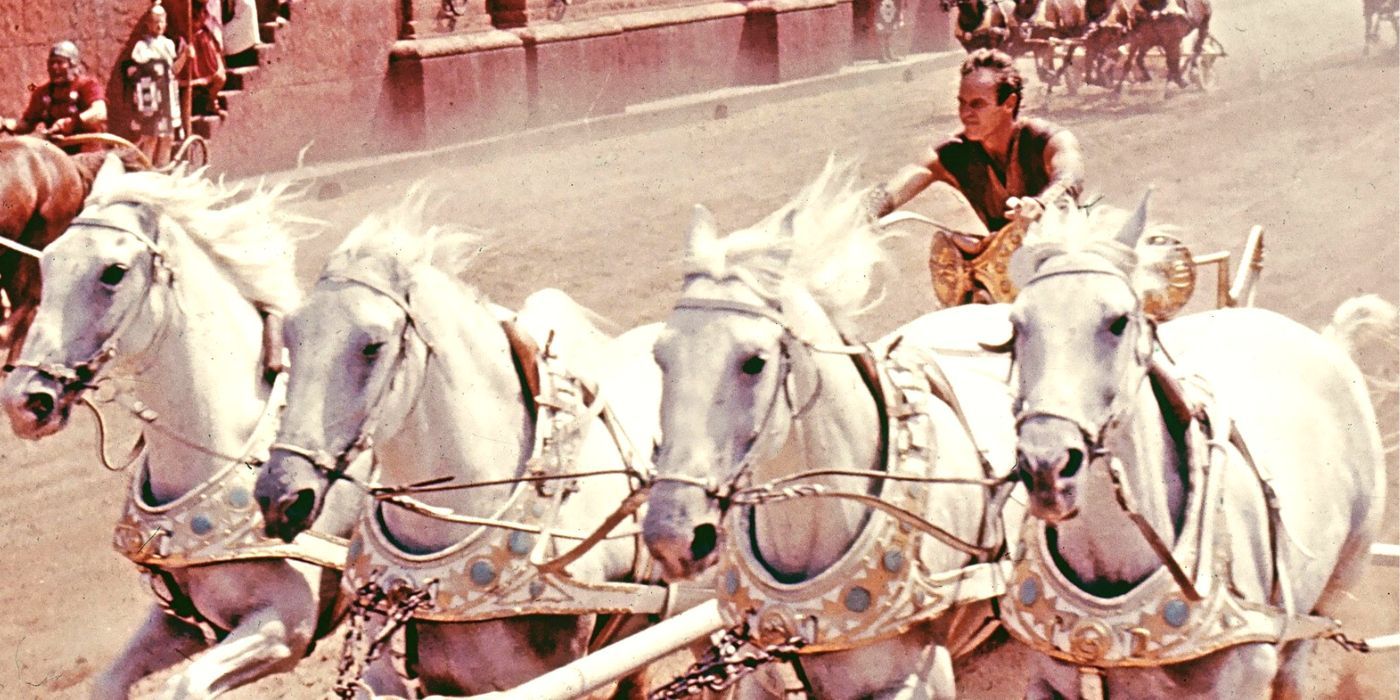 Image via MGM
Image via MGM A massive spectacle that brought the gargantuan scale and weight of a real Colosseum arena to the big screen in a way that has never truly been accomplished before or since, Ben-Hur is a feat of filmmaking that was always going to win big at the Academy Awards. A remake of a classic film from the 1920s, the film sees Judah Ben-Hur (Charlton Heston) being falsely accused by his childhood friend-turned-overlord, being banished and put into slavery while his family is made into prisoners. This acts as only the beginning of Ben-Hur's quest for revenge, fighting through the ranks and making his name known in the process.
Ben-Hur was nominated for 12 out of 15 possible categories that it was eligible for, yet even more shocking was that it nearly swept every award it was nominated for, winning 11 out of its 12 nominations. Even after 65 years, this is still the tied record for the highest amount of awards that were won by a single film, cementing its status as one of the biggest Academy Award success stories of all time. No film in the future may surpass the heights that Ben-Hur first achieved in terms of wins, although several other films have earned more nominations.
Release Date April 19, 2016
Runtime 123 Minutes
14 'The Curious Case of Benjamin Button' (2008)
13 Nominations (and 3 Wins)
Nomination | Recipient |
Best Picture | Kathleen Kennedy, Frank Marshall, and Ceán Chaffin |
Best Director | David Fincher |
Best Actor | Brad Pitt |
Best Supporting Actress | Taraji P. Henson |
Best Adapted Screenplay | Eric Roth and Robin Swicord |
Best Art Direction | Donald Graham Burt and Victor J. Zolfo |
Best Cinematography | Claudio Miranda |
Best Costume Design | Jacqueline West |
Best Film Editing | Kirk Baxter and Angus Wall |
Best Makeup | Greg Cannom |
Best Original Score | Alexandre Desplat |
Best Sound Mixing | David Parker, Michael Semanick, Ren Klyce, and Mark Weingarten |
Best Visual Effects | Eric Barba, Steve Preeg, Burt Dalton, and Craig Barron |
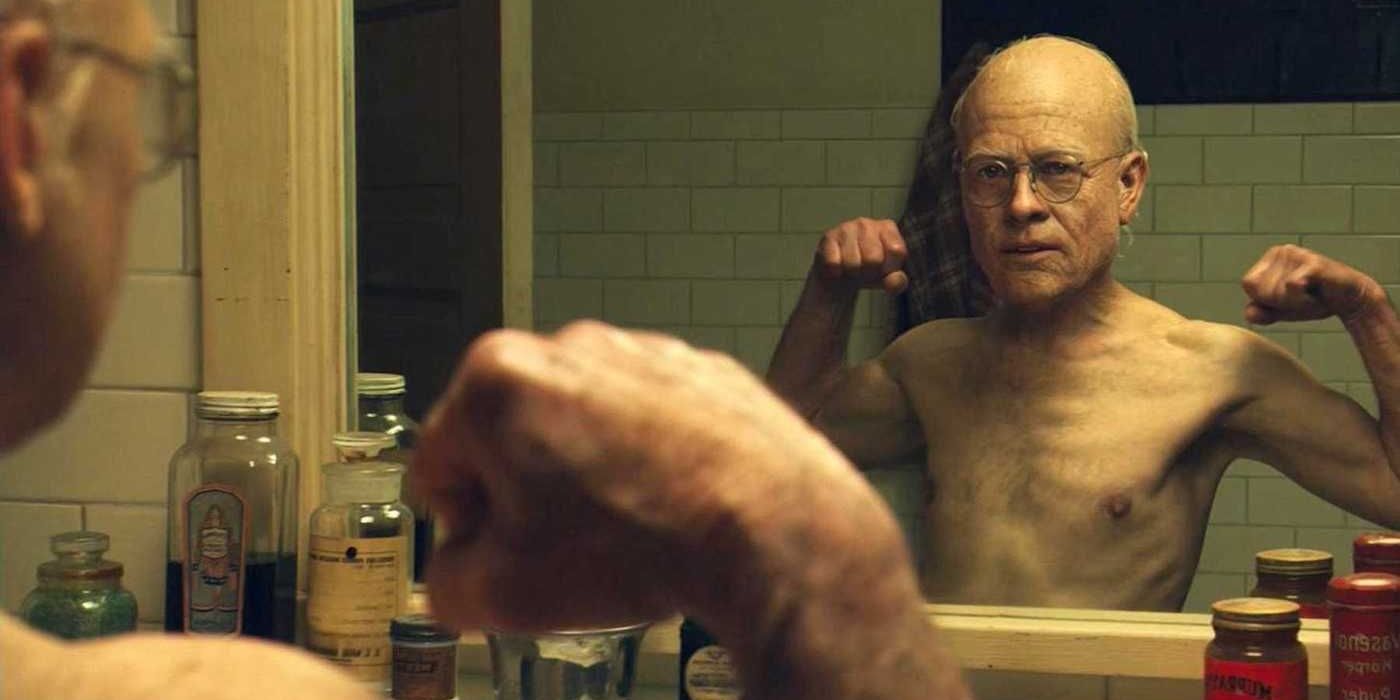 Image via Paramount Pictures
Image via Paramount Pictures The Curious Case of Benjamin Button is one of many masterful dramas to come from legendary director David Fincher. The film follows Benjamin Button (Brad Pitt), who lives an unusual life: he was born looking like an elderly man and appears to get younger and younger as the years go by. In the old folks home where he lives, he meets a young girl of the same age. As they fall in love, however, they know it is only a matter of time before Benjamin’s condition becomes a persistent complication that will jeopardize their future together.
It comes as no surprise that Fincher's film has captured the hearts of many viewers and film critics. The Curious Case of Benjamin Button received 13 nominations out of the 26 possible categories and won three awards for Best Art Direction, Best Visual Effects, and Best Makeup. Interestingly and annoyingly, Academy frontrunner Cate Blanchett did not receive an Oscar nomination for her role as Daisy Fuller (adult version) in the film.
Release Date December 25, 2008
Runtime 167 minutes
13 'The Shape of Water' (2017)
13 Nominations (and 4 Wins)
Nomination | Recipient |
Best Picture | Guillermo del Toro and J. Miles Dale |
Best Director | Guillermo del Toro |
Best Actress | Sally Hawkins |
Best Supporting Actor | Richard Jenkins |
Best Supporting Actress | Octavia Spencer |
Best Original Screenplay | Guillermo del Toro and Vanessa Taylor |
Best Cinematography | Dan Laustsen |
Best Costume Design | Luis Sequeira |
Best Film Editing | Sidney Wolinsky |
Best Original Score | Alexandre Desplat |
Best Production Design | Paul Denham Austerberry, Shane Vieau, and Jeff Melvin |
Best Sound Editing | Nathan Robitaille and Nelson Ferreira |
Best Sound Mixing | Christian Cooke, Brad Zoern, and Glen Gauthier |
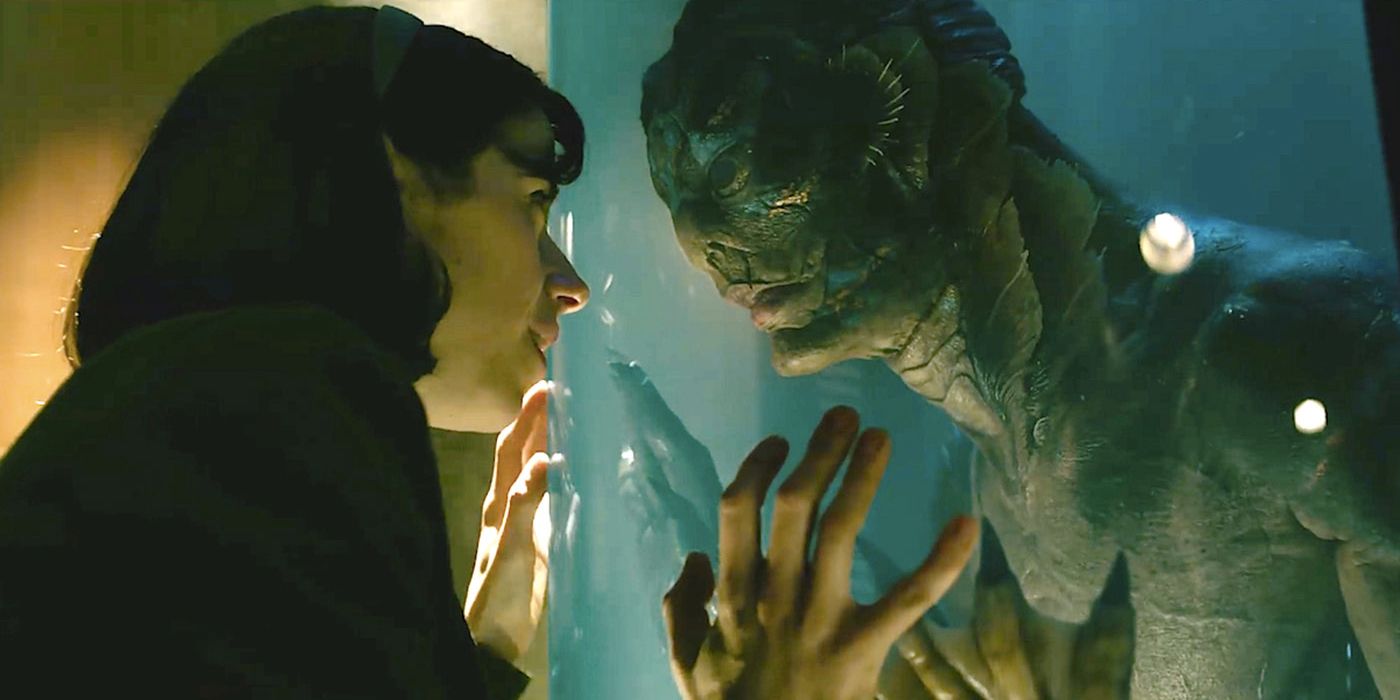 Image via Fox Searchlight Pictures
Image via Fox Searchlight Pictures The Shape of Water tells a bizarre but heartbreakingly beautiful love story in a high-security government laboratory. The life of a mute cleaning lady, Elisa Esposito (Sally Hawkins), is forever changed when she discovers the lab’s classified secret: a strange scaled amphibian creature (Doug Jones) that lives in a water tank. However, as they develop a deep bond with each other, they soon realize that the future that lies ahead is uncertain.
Only Guillermo del Toro could’ve pulled off such an absorbingly emotional story between a woman and a creature so seamlessly and so beautifully. Following its critical acclaim and success, the film was nominated for 13 categories at the Oscars. However, The Shape of Water only snatched up four wins for Best Original Score, Best Production Design, Best Director, and Best Picture. The film continues to attain a powerful legacy and impact on audiences even to this day, well after its success at the Academy Awards.
The Shape of Water
Release Date December 1, 2017
Director Guillermo del Toro
Runtime 123 minutes
12 'The Lord of the Rings: The Fellowship of the Ring' (2001)
13 Nominations (and 4 Wins)
Nomination | Recipient |
Best Picture | Peter Jackson, Fran Walsh, and Barrie M. Osborne |
Best Director | Peter Jackson |
Best Supporting Actor | Ian McKellen |
Best Adapted Screenplay | Fran Walsh, Philippa Boyens, and Peter Jackson |
Best Art Direction | Grant Major and Dan Hennah |
Best Cinematography | Andrew Lesnie |
Best Costume Design | Ngila Dickson and Richard Taylor |
Best Film Editing | John Gilbert |
Best Makeup | Peter Owen and Richard Taylor |
Best Original Score | Howard Shore |
Best Original Song | Enya, Nicky Ryan, and Roma Ryan ("May It Be") |
Best Sound | Christopher Boyes, Michael Semanick, Gethin Creagh, and Hammond Peek |
Best Visual Effects | Jim Rygiel, Randall William Cook, Richard Taylor, and Mark Stetson |
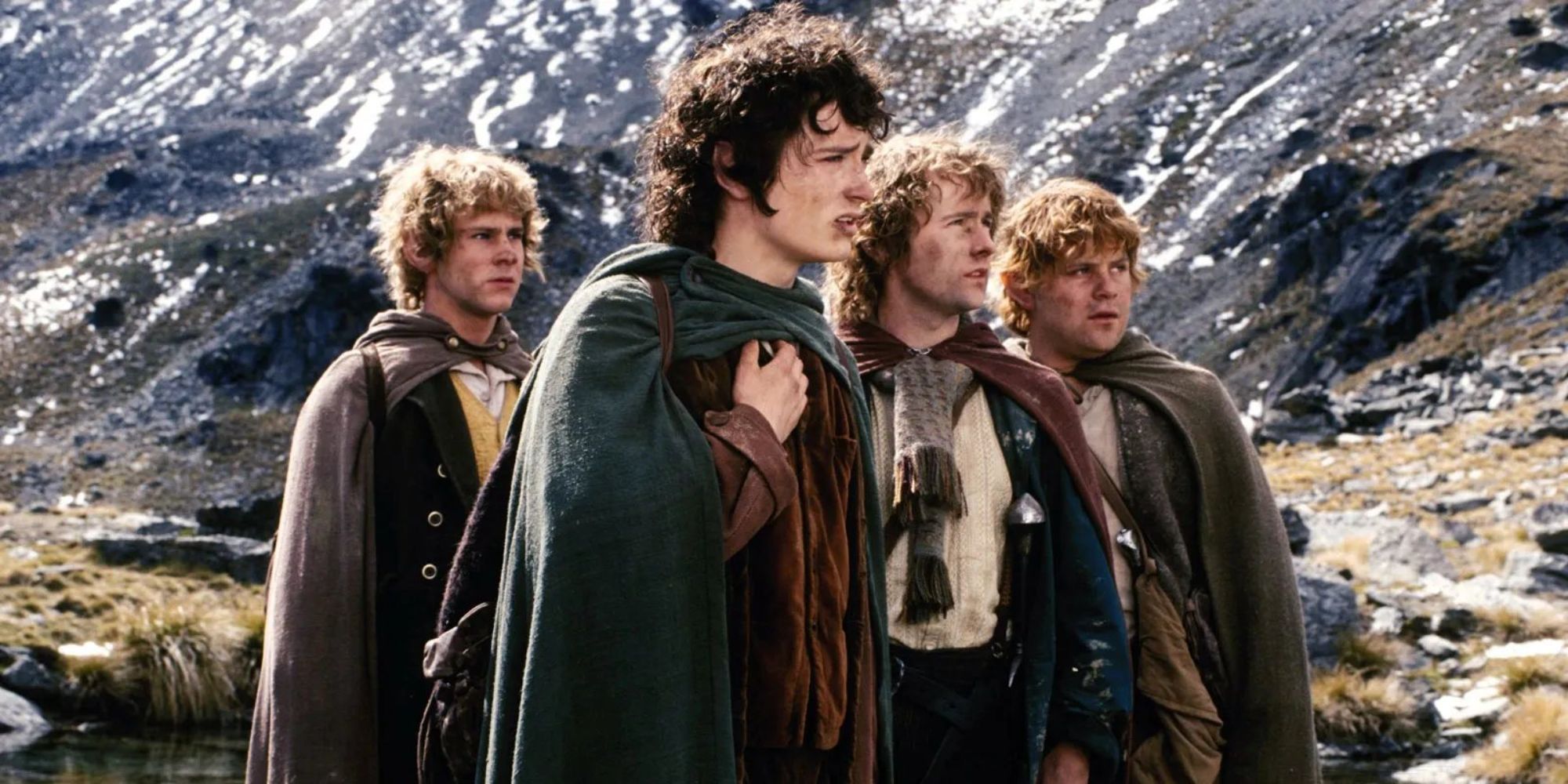 Image via New Line Cinema
Image via New Line Cinema Deemed one of the best and most successful film series ever made, the first installment of the trilogy, The Lord of the Rings: The Fellowship of the Ring, received 13 nominations at the 74th Academy Awards. The film is frequently praised for its special effects, impeccable cast, and for perfectly bringing J. R. R. Tolkien’s imaginative classic to life. Fellowship of the Ring especially made massive waves among the Academy, as it would earn the highest number of nominations for any film in the trilogy.
Out of its 13 Oscar nominations, the film won four awards for Best Cinematography, Best Makeup, Best Original Score, and Best Visual Effects. The Lord of the Rings: The Fellowship of the Ring was also the most Oscar-nominated film of the year, securing nominations for awards such as Best Picture, Best Director, Best Adapted Screenplay, and Best Supporting Actor for Ian McKellan as Gandalf. While it didn't end up winning Best Picture, eventually, The Lord of the Rings: The Return of the King, would be able to secure a Best Picture victory for the franchise.
Release Date December 19, 2001
Runtime 178 minutes
11 'Who's Afraid of Virginia Woolf?' (1966)
13 Nominations (and 5 Wins)
Best Picture | Ernest Lehman |
Best Actor | Richard Burton |
Best Actress | Elizabeth Taylor |
Best Supporting Actor | George Segal |
Best Supporting Actress | Sandy Dennis |
Best Director | Mike Nichols |
Best Adapted Screenplay | Ernest Lehman |
Best Cinematography, Black-and-White | Haskell Wexler |
Best Art Direction-Set Decoration, Black-and-White | Richard Sylbert, George James Hopkins |
Best Costume Design, Black-and-White | Irene Sharaff |
Best Sound | George Groves |
Best Film Editing | Sam O'Steen |
Best Music, Original Music Score | Alex North |
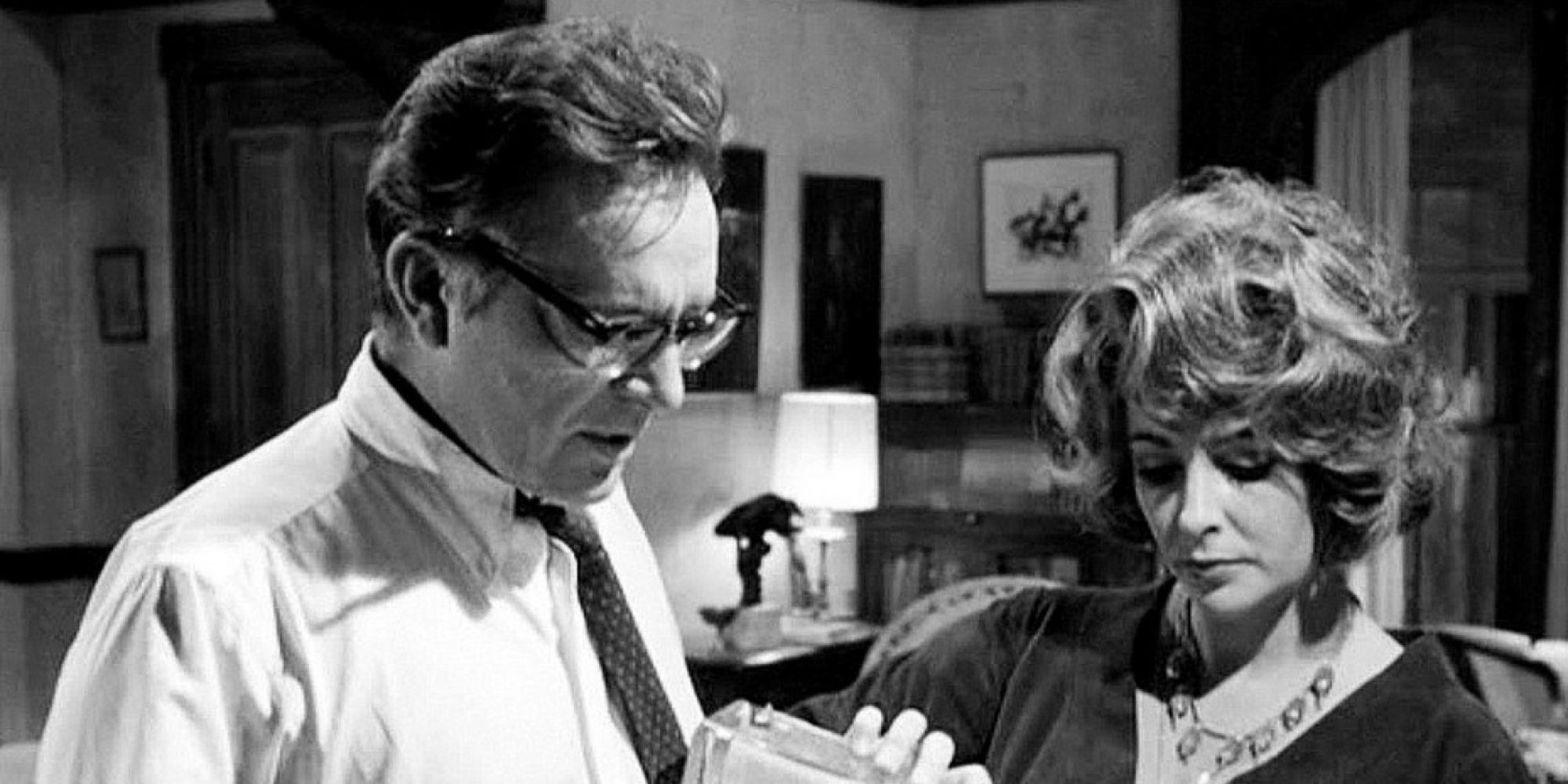 Image via Warner Bros.
Image via Warner Bros. While the film may have lost the battle for Best Picture to A Man for All Seasons, this didn't stop Who's Afraid of Virginia Woolf? from taking home a handful of awards and being one of the most nominated films in Academy Awards history. The film follows a history professor and his wife who in what was originally a simple kind gesture, find themselves entertaining a young couple who are new to working at the university. However, as drinks are consumed and they become inebriated, several uncomfortable and bitter truths about the difficulties of their relationship are thrust upon this young couple.
Who's Afraid of Virginia Woolf? is an interesting case, as the film was widely beloved and acclaimed upon its release, as apparent by its various nominations, yet still lost the big award to a film that only received 8 nominations. Time has only served to be incredibly kind to Virginia Woolf, as its themes of relationship struggles and the painful truths and sacrifices made for love still ring true and powerful all these decades later. Thankfully, the film still received a great amount of wins, including the likes of Best Actress, Best Supporting Actress, and Best Cinematography.
Who's Afraid of Virginia Woolf?
Release Date June 21, 1966
Runtime 132 Minutes
Main Genre Drama
10 'Mary Poppins' (1964)
13 Nominations (and 5 Wins)
Nomination | Recipient |
Best Picture | Walt Disney and Bill Walsh |
Best Director | Robert Stevenson |
Best Actress | Julie Andrews |
Best Screenplay | Bill Walsh and Don DaGradi |
Best Art Direction | Carroll Clark, William H. Tuntke, Emile Kuri, and Hal Gausman |
Best Cinematography | Edward Colman |
Best Costume Design | Tony Walton |
Best Film Editing | Cotton Warburton |
Best Music Score | Richard M. Sherman and Robert B. Sherman |
Best Scoring of Music | Irwin Kostal |
Best Song | Richard M. Sherman and Robert B. Sherman ("Chim Chim Cher-ee") |
Best Sound | Robert O. Cook |
Best Special Visual Effects | Peter Ellenshaw, Eustace Lycett, and Hamilton Luske |
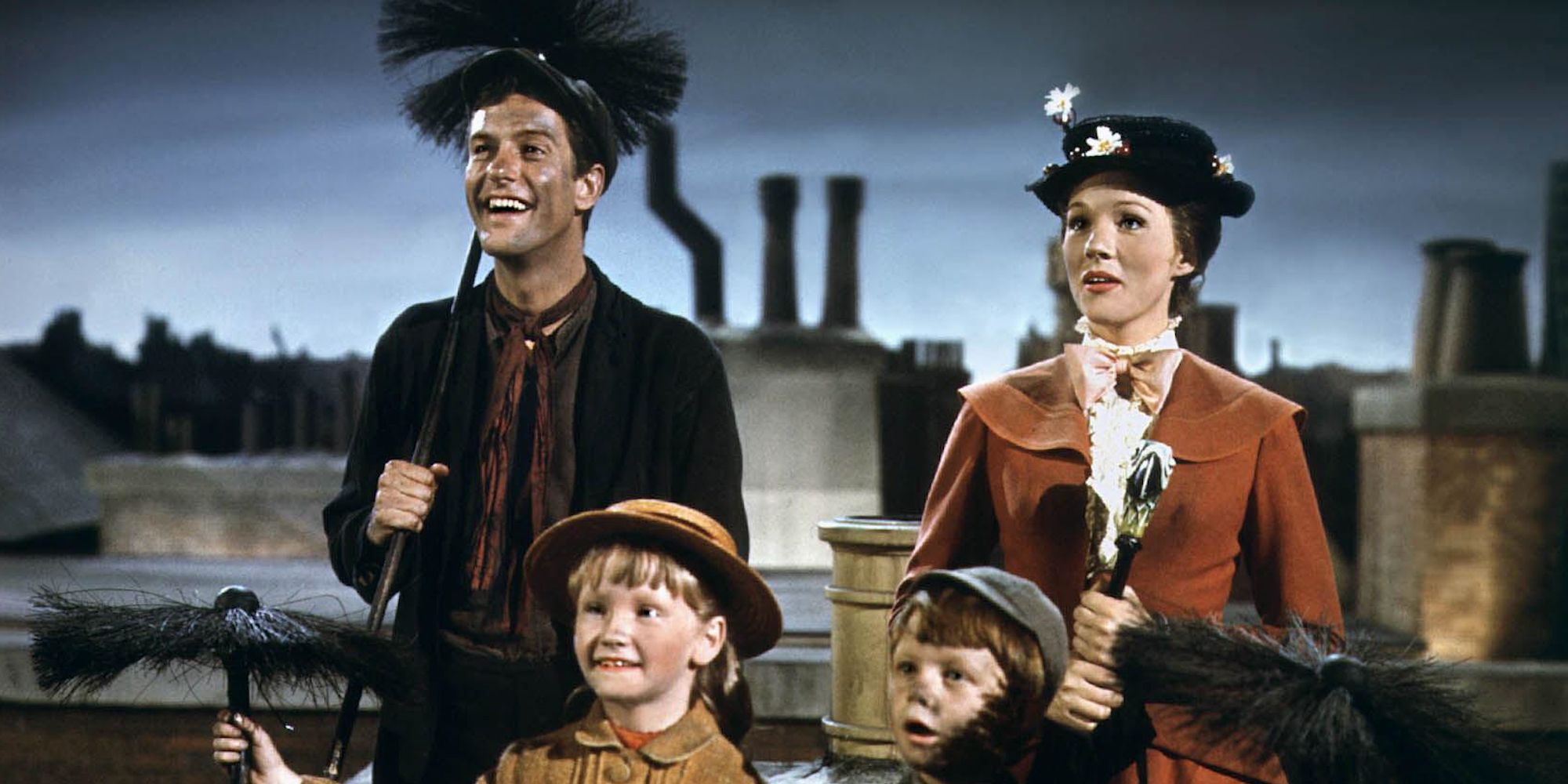 Image via Walt Disney Studios Motion Pictures
Image via Walt Disney Studios Motion Pictures Mary Poppins enjoys its enduring legacy of being one of the most rewatchable musical movies of all time despite premiering 60 years ago. Starring Julie Andrews in her iconic role as the titular magical nanny, the film follows the fantastical events after she meets the rich but uptight Banks family. She soon teaches the two kids, Jane (Karen Dotrice) and Michael (Matthew Garber), a thing or two about life and kindness.
The groundbreaking Disney musical fantasy film merged animation and live-action to incredible effect, with sequences like the kids jumping into a painting becoming unforgettable for audiences at that time. It also had impeccably cast characters to tell its heartwarming story about family and good values, which cemented it as the perfect family movie. Marry Poppins would go on to earn 13 nominations and win five, including Best Actress for Julie Andrews and Best Song for "Chim Chim Cher-ee." – Hannah Saab
Release Date August 27, 1964
Director Robert Stevenson
Runtime 140
9 'Chicago' (2002)
13 Nominations (and 6 Wins)
Nomination | Recipient |
Best Picture | Martin Richards |
Best Director | Rob Marshall |
Best Actress | Renée Zellweger |
Best Supporting Actor | John C. Reilly |
Best Supporting Actress | Queen Latifah |
Catherine Zeta-Jones | |
Best Adapted Screenplay | Bill Condon |
Best Art Direction | John Myhre and Gordon Sim |
Best Cinematography | Dion Beebe |
Best Costume Design | Colleen Atwood |
Best Film Editing | Martin Walsh |
Best Original Song | John Kander and Fred Ebb ("I Move On") |
Best Sound | Michael Minkler, Dominick Tavella, and David Lee |
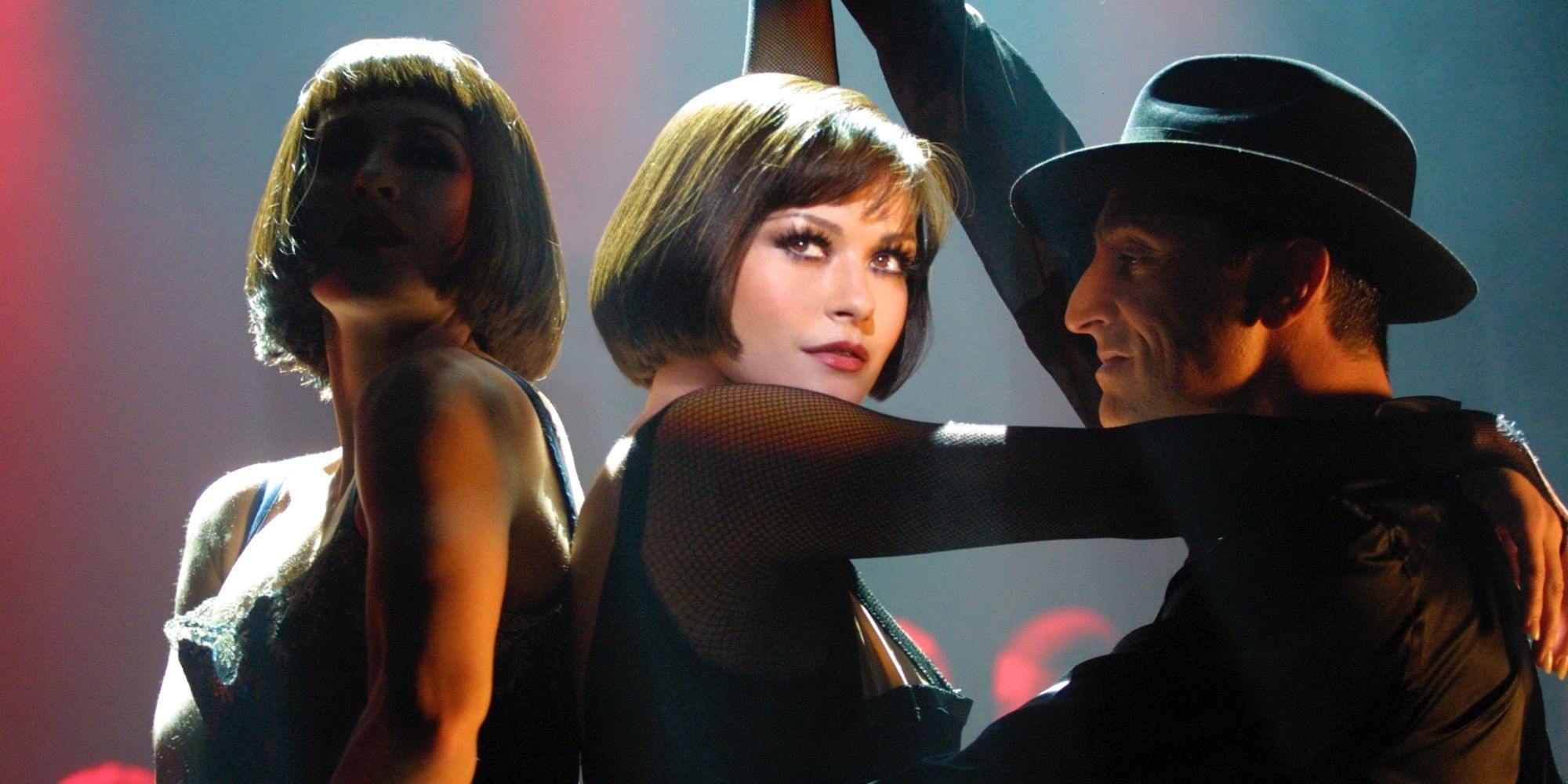 Image via Miramax
Image via Miramax While a famous Chicago theater performer, Velma Kelly (Catherine Zeta-Jones), kills her husband and sister after finding them in bed together, an aspiring theater performer, Roxie Hart (Renée Zellweger), finds herself in the same fate after killing her lover, who she thought would make her a star. As the two murderers find themselves in prison, lawyer Billy Flynn (Richard Gere) takes on both cases and puts them in the spotlight of a media circus, where they fight against each other for fame and publicity.
With 13 nominations, Chicago became the most nominated film at the 75th Academy Awards, with the musical ending up winning Best Picture. Aside from that top award and out of the 13 nominations, the film won five more for Best Supporting Actress, Best Art Direction, Best Film Editing, Best Costume Design, and Best Sound. The film was also able to secure nominations in categories such as Best Actress, Best Supporting Actor, Best Cinematography, Best Director, and even a second nomination for Best Supporting Actress.
Chicago
Release Date December 10, 2002
Director Rob Marshall
Runtime 113 Minutes
8 'Forrest Gump' (1994)
13 Nominations (and 6 Wins)
Nomination | Recipient |
Best Picture | Wendy Finerman, Steve Starkey, and Steve Tisch |
Best Director | Robert Zemeckis |
Best Actor | Tom Hanks |
Best Supporting Actor | Gary Sinise |
Best Screenplay | Eric Roth |
Best Art Direction | Rick Carter and Nancy Haigh |
Best Cinematography | Don Burgess |
Best Film Editing | Arthur Schmidt |
Best Makeup | Daniel C. Striepeke, Judith A. Cory, and Hallie D'Amore |
Best Original Score | Alan Silvestri |
Best Sound | Randy Thom, Tom Johnson, Dennis S. Sands, and William B. Kaplan |
Best Sound Effects Editing | Gloria S. Borders and Randy Thom |
Best Visual Effects | Ken Ralston, George Murphy, Allen Hall, and Stephen Rosenbaum |
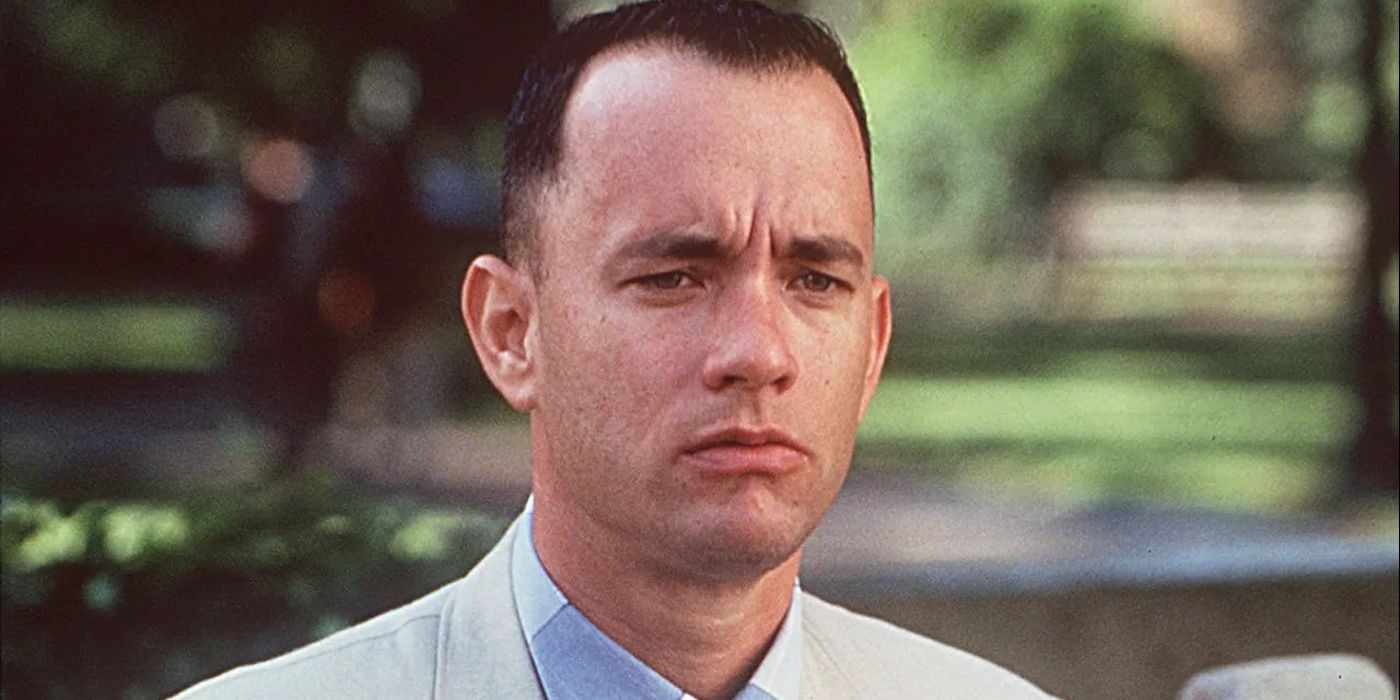 Image via Paramount Pictures
Image via Paramount Pictures Although Forrest Gump (Tom Hanks) faces many tribulations throughout his life, he never lets any of them stand in the way of his happiness and believes that good things will happen no matter the circumstances. Throughout the film, Forrest achieves many accomplishments, such as serving in the US Army, inspiring people to jog, creating a famous shrimp fishing fleet, being a world-renowned ping-pong player, and even winning medals and meeting several US Presidents. Despite all his achievements, however, all he ever wanted was to love and be loved by his childhood sweetheart Jenny Curran (Robin Wright).
Forrest Gump won six of the 13 categories for which the film was nominated. The film took the awards for Best Visual Effects; Best Film Editing; Best Screenplay (or Adapted Screenplay); Best Actor (making him only one of two actors to win the Best Actor award two years in a row - he won the previous year for his role in Philadelphia); Best Director; and Best Picture. The Shawshank Redemption, Four Weddings and a Funeral, and Pulp Fiction were among the considered nominees for Best Picture.
Forrest Gump
Release Date July 6, 1994
Director Robert Zemeckis
Runtime 142
7 'Shakespeare in Love' (1998)
13 Nominations (and 7 Wins)
Nomination | Recipient |
Best Picture | David Parfitt, Donna Gigliotti, Harvey Weinstein, Edward Zwick, and Marc Norman |
Best Director | John Madden |
Best Actress | Gwyneth Paltrow |
Best Supporting Actor | Geoffrey Rush |
Best Supporting Actress | Judi Dench |
Best Screenplay | Marc Norman and Tom Stoppard |
Best Art Direction | Martin Childs and Jill Quertier |
Best Cinematography | Richard Greatrex |
Best Costume Design | Sandy Powell |
Best Film Editing | David Gamble |
Best Makeup | Lisa Westcott and Veronica Brebner |
Best Original Musical or Comedy Score | Stephen Warbeck |
Best Sound | Robin O'Donoghue, Dominic Lester, and Peter Glossop |
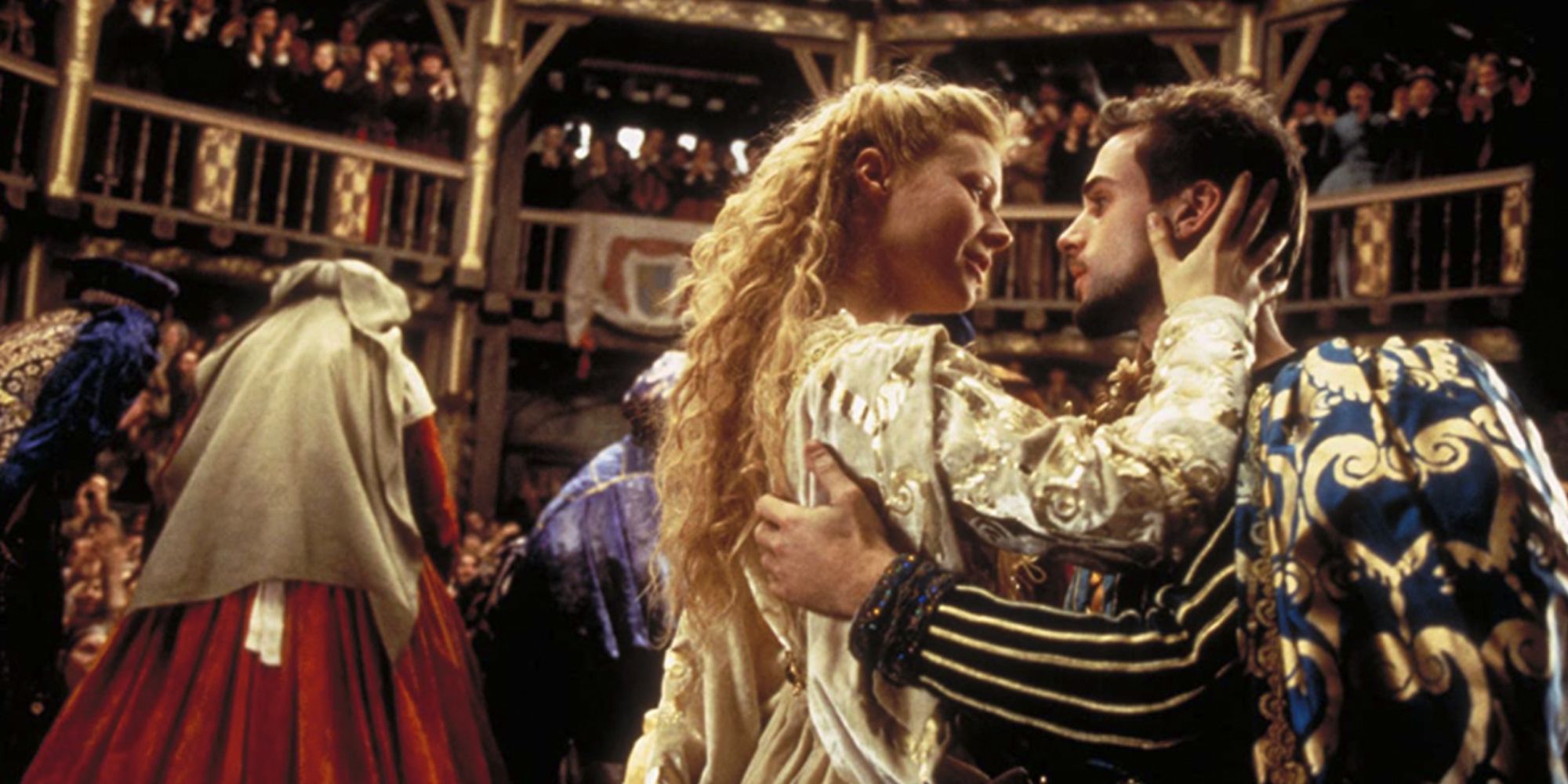 Image via Miramax
Image via Miramax In Shakespeare in Love, English playwright William Shakespeare (Joseph Fiennes) struggles with writer’s block. But meeting the enticing Viola de Lesseps (Gwyneth Paltrow) inspired him to write the infamous story of Romeo and Juliet. Eventually, the duo end up falling in love themselves as they play against one another in their own portrayal of Romeo and Juliet, performing together as they continue to fall deeper into their forbidden love.
The 71st Academy Awards was a strong year for films. Many incredible films, such as Elizabeth, Saving Private Ryan, and Life is Beautiful, were among the contenders for Best Picture. Despite this, Shakespeare in Love was in the lead with 13 nominations and had seven wins for Best Original Musical or Comedy Score; Best Costume Design; Best Art Direction; Best Screenplay; Best Supporting Actress; Best Actress; and Best Picture.
Release Date January 29, 1998
Runtime 122
6 'Oppenheimer' (2023)
13 Nominations (and 7 Wins)
Nomination | Recipient |
Best Picture | Emma Thomas, Charles Roven, and Christopher Nolan |
Best Director | Christopher Nolan |
Best Actor | Cillian Murphy |
Best Supporting Actor | Robert Downey Jr. |
Best Supporting Actress | Emily Blunt |
Best Adapted Screenplay | Christopher Nolan |
Best Cinematography | Hoyte van Hoytema |
Best Costume Design | Ellen Mirojnick |
Best Sound | Willie Burton, Richard King, Gary A. Rizzo, and Kevin O’Connell |
Best Original Score | Ludwig Göransson |
Best Makeup and Hairstyling | Luisa Abel |
Best Production Design | Ruth De Jong and Claire Kaufman |
Best Film Editing | Jennifer Lame |
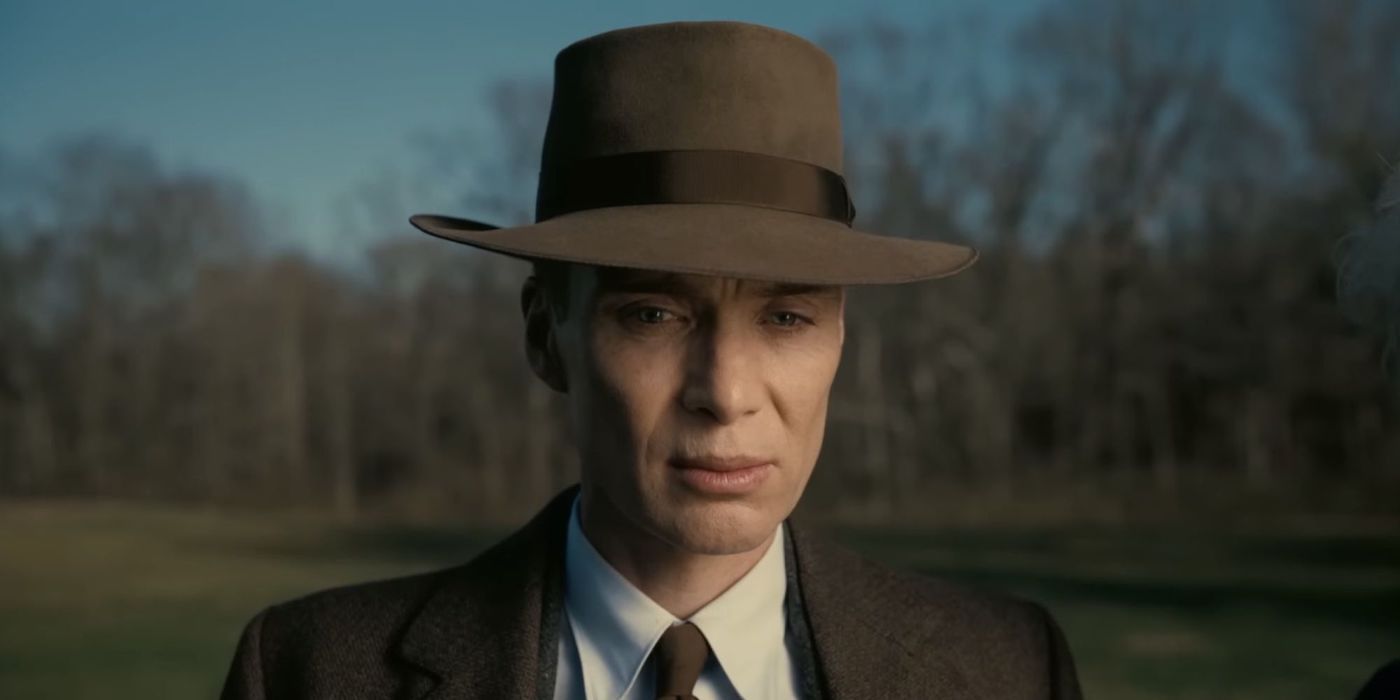 Image via Universal Pictures
Image via Universal Pictures Oppenheimer is a powerful and deeply resonating historical biopic from director Christopher Nolan that follows the story of real-life historical figure Robert J. Oppenheimer, the man primarily responsible for the creation of the atomic bomb. Played by Cillian Murphy, Oppenheimer is tasked with forming together a massive group of the world's greatest scientists in a race to create the bomb before German scientists can beat them to it. However, he soon has to go face to face with the moral ramifications of his transgressions, both personal and worldwide in scope.
Nolan's film has already made massive waves as one of the biggest modern success stories for an R-rated historical drama, with Oppenheimer earning nearly a billion dollars and enthralling audiences and critics worldwide. This praise continued into the 96th Academy Awards, earning 13 nominations for categories such as Best Picture, Best Director, Best Actor, Best Supporting Actor, Best Adapted Screenplay, and many more. It became one of the rare films that wasn't just a monumental hit among audiences, but left just as much of a mark among critics and the academy, a rarity in the modern era.
Release Date July 21, 2023
Runtime 180 minutes
5 'From Here to Eternity' (1953)
13 Nominations (and 8 Wins)
Best Picture | Buddy Adler |
Best Actor | Montgomery Clift |
Best Actor | Burt Lancaster |
Best Actress | Deborah Kerr |
Best Supporting Actor | Frank Sinatra |
Best Supporting Actress | Donna Reed |
Best Director | Fred Zinnermann |
Best Adapted Screenplay | Daniel Taradash |
Best Cinematography, Black-and-White | Burnett Guffey |
Best Costume Design, Black-and-White | Jean Louis |
Best Sound, Recording | John P. Livadary |
Best Film Editing | William A. Lyon |
Best Music, Scoring of a Dramatic or Comedy Picture | Moriss Stoloff, George Duning |
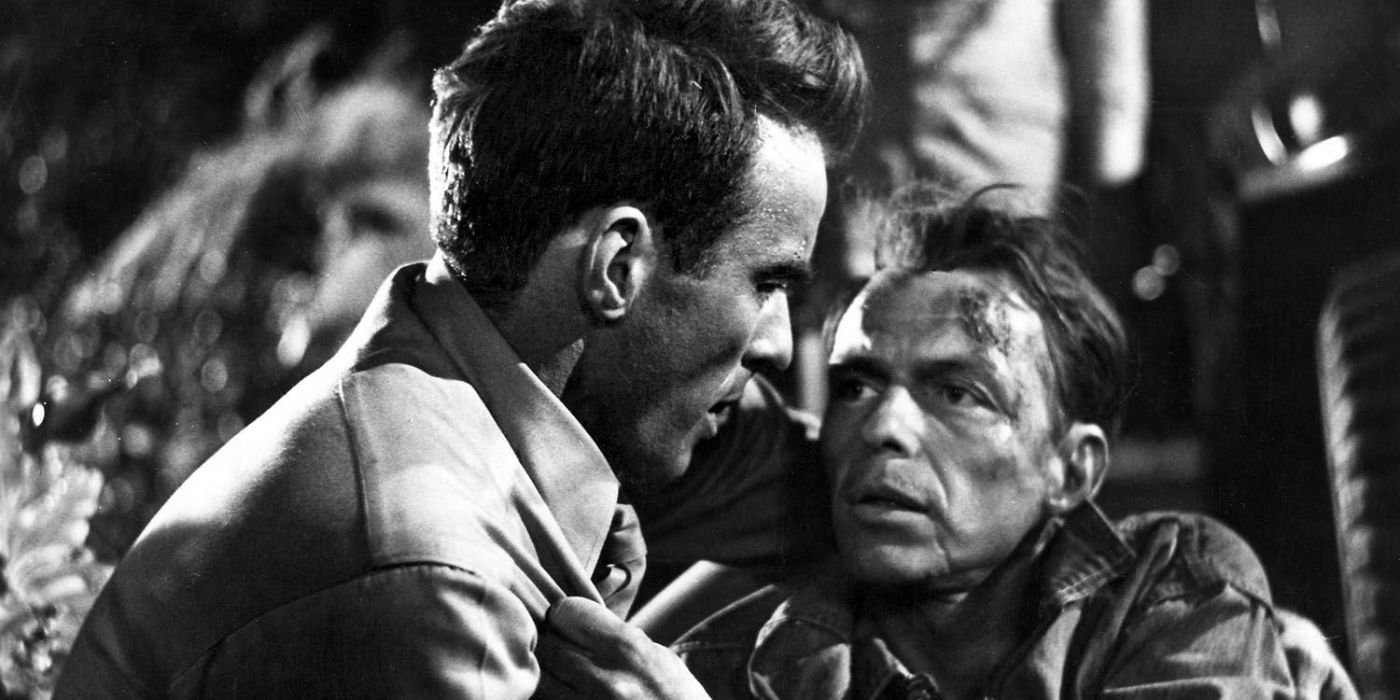 Image via Columbia Pictures
Image via Columbia Pictures A film that largely found a boost in its nomination count thanks to receiving 5 acting nominations, From Here to Eternity was a powerful wartime romance drama that cut to the heart of critics of the era and released at the perfect time. The film follows the tribulations of a trio of U.S. Army soldiers that are stationed on Hawaii in the months leading up to the Pearl Harbor attack. Their lives find themselves intertwined in the drama of romance and adultery as the painful tragedy slowly approaches on the horizon.
From Here to Eternity is a film largely defined by its stellar cast of characters and performances, so it's no surprise that each primary member of the cast would receive a nomination, giving the film a nomination in each of the 4 acting categories, with 2 nominations for Best Actor. Of these nominations, the most notable win would be Frank Sinatra's win for Best Supporting Actor for his portrayal of Pvt. Angelo Maggio in an electrifying and powerful performance. The film would also receive various other above-the-line wins, including Best Picture, Best Director, Best Adapted Screenplay, and Best Supporting Actress.
Release Date August 28, 1953
Director Fred Zinnemann
Runtime 118 Minutes
4 'Gone with the Wind' (1939)
13 Nominations (and 8 Wins)
Nomination | Recipient |
Outstanding Production | Selznick International Pictures |
Best Director | Victor Fleming |
Best Actor | Clark Gable |
Best Actress | Vivien Leigh |
Best Supporting Actress | Olivia de Havilland |
Hattie McDaniel | |
Best Screenplay | Sidney Howard |
Best Art Direction | Lyle Wheeler |
Best Cinematography | Ernest Haller and Ray Rennahan |
Best Film Editing | Hal C. Kern and James E. Newcom |
Best Original Score | Max Steiner |
Best Sound Recording | Thomas T. Moulton |
Best Visual Effects | Jack Cosgrove, Fred Albin, and Arthur Johns |
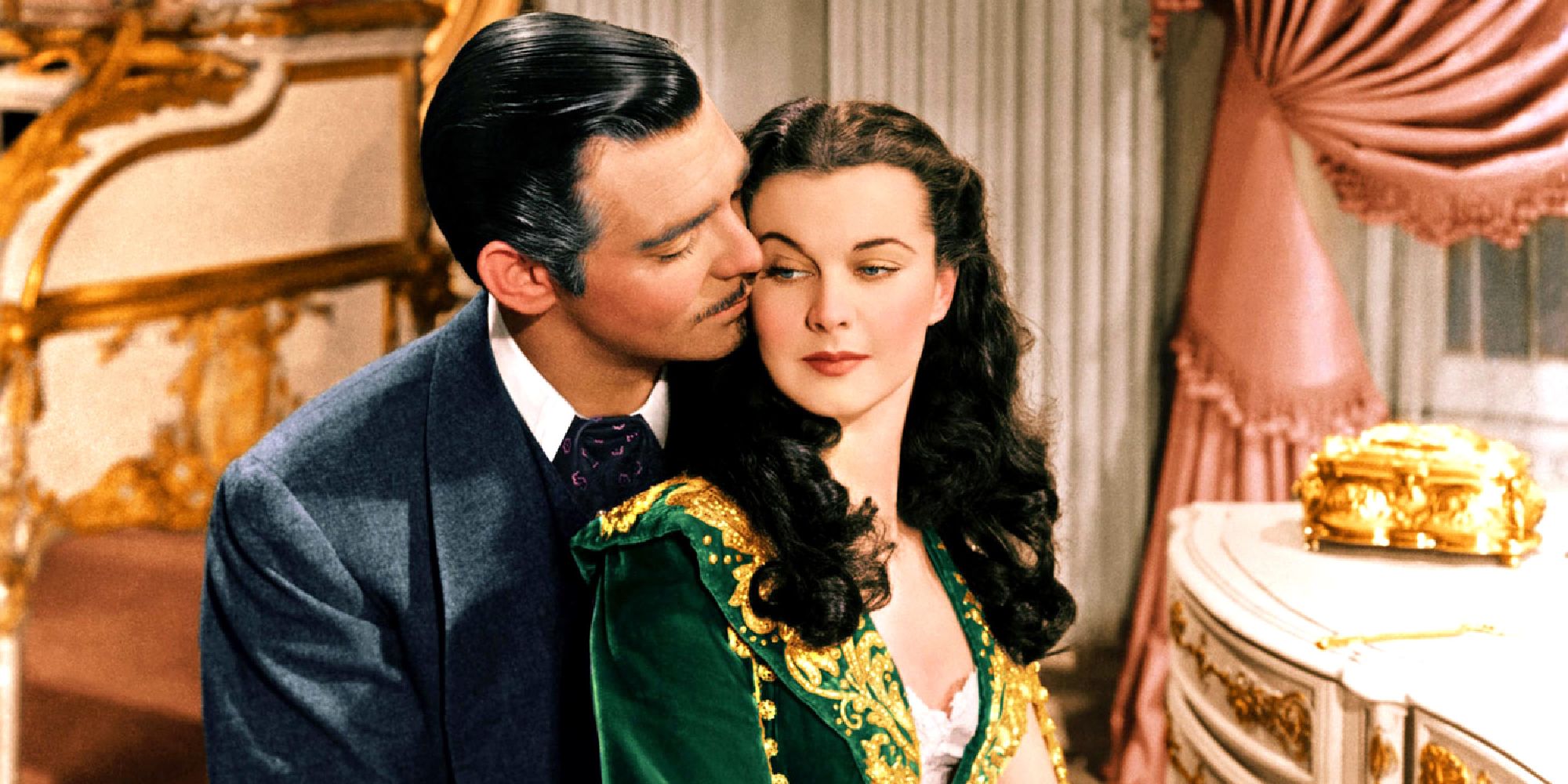 Image via Loew's Inc.
Image via Loew's Inc. Adapted from the Margaret Mitchell novel of the same name, Gone with the Wind is an epic historical romance film that focuses on the life of Scarlett O’Hara (Vivien Leigh) and her love affairs with Ashley Wilkes (Leslie Howard) and Rhett Butler (Clark Gable). More importantly, it depicted the tragic history of the Civil War and Reconstruction. Although the film has remained a classic throughout the years, many aspects, such as the depiction of Black slaves in the film, have caused much controversy around Gone with the Wind, with these elements deemed offensive by contemporary audiences.
Having broken many records at the Oscars, Gone with the Wind was a marvel of its time. By winning eight out of its 13 nominations, the film was the first to set records for the total number of wins and nominations given to a film. Hattie McDaniel, who played the house servant, Mammy, in the film, became the first Black woman to win an Oscar in an acting category (Best Supporting Actress). With a running time of 238 minutes, Gone with the Wind was (and still is) also the longest film to have won Best Picture at the Oscars.
Gone With the Wind
Release Date December 15, 1939
Director Victor Fleming , George Cukor , Sam Wood
Cast Thomas Mitchell , Barbara O'Neil , Vivien Leigh , Evelyn Keyes , Ann Rutherford , George Reeves , Hattie McDaniel
Runtime 238 minutes
3 'All About Eve' (1950)
14 Nominations (and 6 Wins)
Nomination | Recipient |
Best Motion Picture | Darryl F. Zanuck |
Best Director | Joseph L. Mankiewicz |
Best Actress | Anne Baxter |
Bette Davis | |
Best Supporting Actor | George Sanders |
Best Supporting Actress | Celeste Holm |
Thelma Ritter | |
Best Screenplay | Joseph L. Mankiewicz |
Best Art Direction | Lyle R. Wheeler, George Davis, Thomas Little, and Walter M. Scott |
Best Cinematography | Milton R. Krasner |
Best Costume Design | Edith Head and Charles LeMaire |
Best Film Editing | Barbara McLean |
Best Scoring of a Dramatic or Comedy Picture | Alfred Newman |
Best Sound Recording | Thomas T. Moulton |
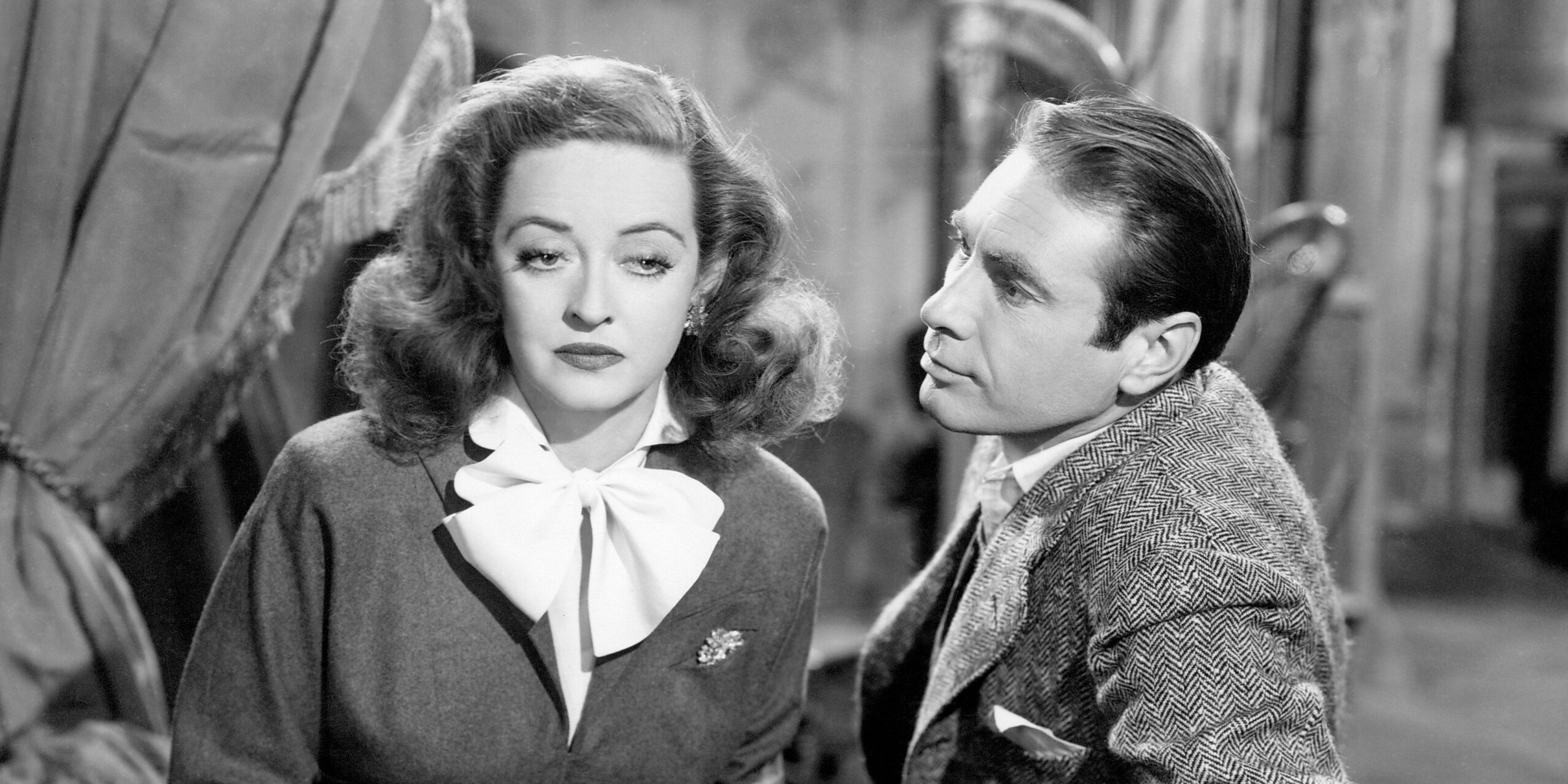 Image via 20th Century Studios
Image via 20th Century Studios One day, a young aspiring actress, Eve Harrington (Anne Baxter), meets her idol, Broadway mega-star Margo Channing (masterfully played by Bette Davis), in her dressing room. Touched by Eve's melancholic life story, Margo unhesitatingly takes Eve under her wing and makes her a personal assistant. With time, however, Eve’s true intentions of being in Margo’s life become increasingly clear. The film made massive waves at the 23rd Academy Awards, with All About Eve becoming one of the biggest successes that the awards show had ever seen up until that point.
All About Eve was the first movie to have received 14 nominations at the Academy Awards. The film brought home a total of six Oscars for Best Costume Design; Best Sound Recording; Best Screenplay; Best Supporting Actor; Best Director; and Best Picture. The film also received numerous other prestigious awards, including two nominees for Best Actress (both Baxter and David) and two nominees for Best Supporting Actress (Celeste Holm and Thelma Ritter).
All About Eve
Release Date October 6, 1950
Director Joseph L. Mankiewicz
Cast Bette Davis , Anne Baxter , George Sanders , Celeste Holm , Gary Merrill , Hugh Marlowe
Runtime 138 minutes
Main Genre Drama
2 'La La Land' (2016)
14 Nominations (and 6 Wins)
Nomination | Recipient |
Best Picture | Fred Berger, Jordan Horowitz, and Marc Platt |
Best Director | Damien Chazelle |
Best Actor | Ryan Gosling |
Best Actress | Emma Stone |
Best Original Screenplay | Damien Chazelle |
Best Cinematography | Linus Sandgren |
Best Costume Design | Mary Zophres |
Best Film Editing | Tom Cross |
Best Original Score | Justin Hurwitz |
Best Original Song | Justin Hurwitz, Benj Pasek, and Justin Paul ("Audition (The Fools Who Dream)") |
Justin Hurwitz, Benj Pasek, and Justin Paul ("City of Stars") | |
Best Production Design | David Wascom and Sandy Reynolds-Wasco |
Best Sound Editing | Ai-Ling Lee and Mildred Iatrou Morgan |
Best Sound Mixing | Andy Nelson, Ai-Ling Lee, and Steven A. Morrow |
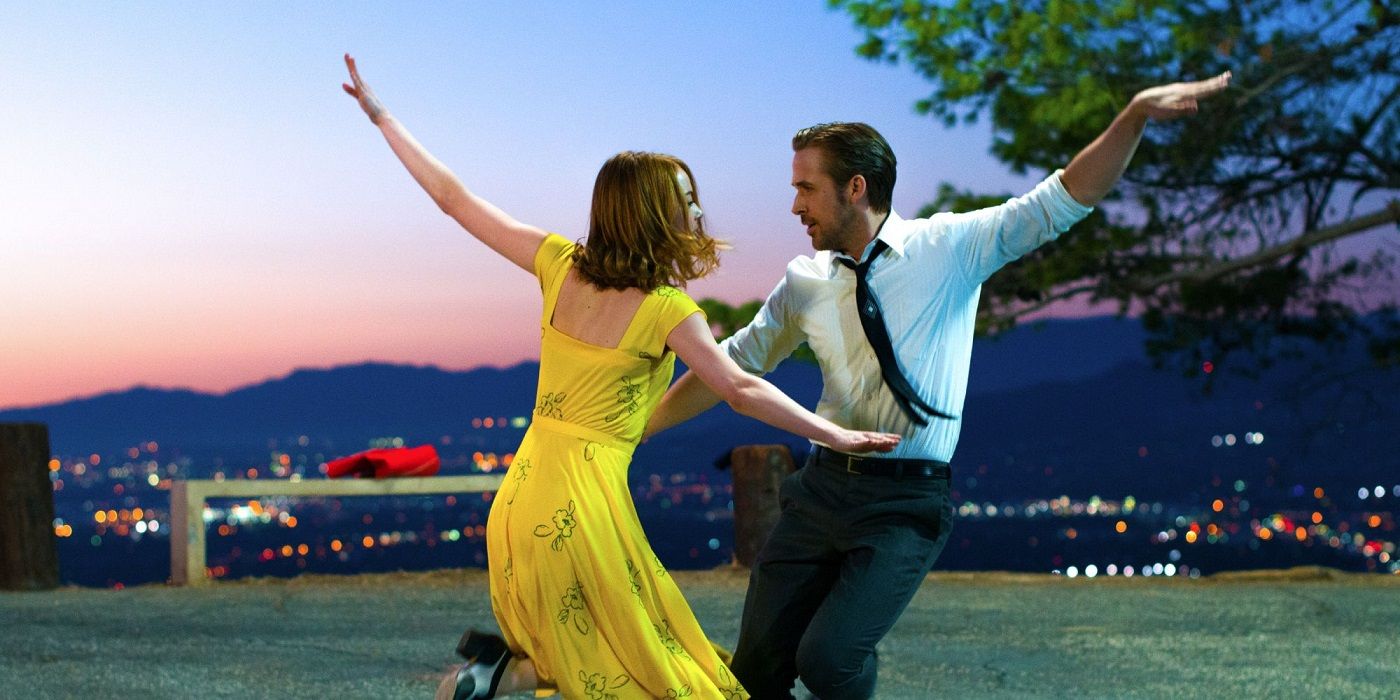 Image via Summit Entertainment
Image via Summit Entertainment Set in Los Angeles, La La Land is a romantic musical comedy film that follows a struggling jazz pianist, Seb Wilder (Ryan Gosling), and an aspiring actress, Mia Dolan (Emma Stone), who are pursuing their dreams but struggling to make ends meet. Together, they must navigate their paths in the city where dreams are made or broken. Being a musical about the magic and beauty of Hollywood and music, it's no wonder that the Academy were big fans of the film and its praise of Hollywood magic.
Following its release, La La Land received widespread critical acclaim and success. The film received 14 nominations at the 89th Oscars, making it one of the few films in Oscar history that have ever achieved that. It won six out of its 14 nominations in the categories of Best Actress; Best Film Editing; Best Original Score; Best Original Song; Best Production Design; Best Comedy; and Best Director for Damien Chazelle, who also broke the record as the youngest director (32 years of age at the time) to win an award in the category.
Release Date November 29, 2016
Director Damien Chazelle
Runtime 126 minutes
1 'Titanic' (1997)
14 Nominations (and 11 Wins)
Nomination | Recipient |
Best Picture | James Cameron and Jon Landau |
Best Director | James Cameron |
Best Actress | Kate Winslet |
Best Supporting Actress | Gloria Stuart |
Best Art Direction | Peter Lamont and Michael D. Ford |
Best Cinematography | Russell Carpenter |
Best Costume Design | Deborah Lynn Scott |
Best Film Editing | Conrad Buff, James Cameron, and Richard A. Harris |
Best Makeup | Tina Earnshaw, Greg Cannom, and Simon Thompson |
Best Original Dramatic Score | James Horner |
Best Original Song | James Horner and Will Jennings ("My Heart Will Go On") |
Best Sound | Gary Rydstrom, Tom Johnson, Gary Summers, and Mark Ulano |
Best Sound Effects Editing | Tom Bellfort and Christopher Boyes |
Best Visual Effects | Robert Legato, Mark A. Lasoff, Thomas L. Fisher, and Michael Kanfer |
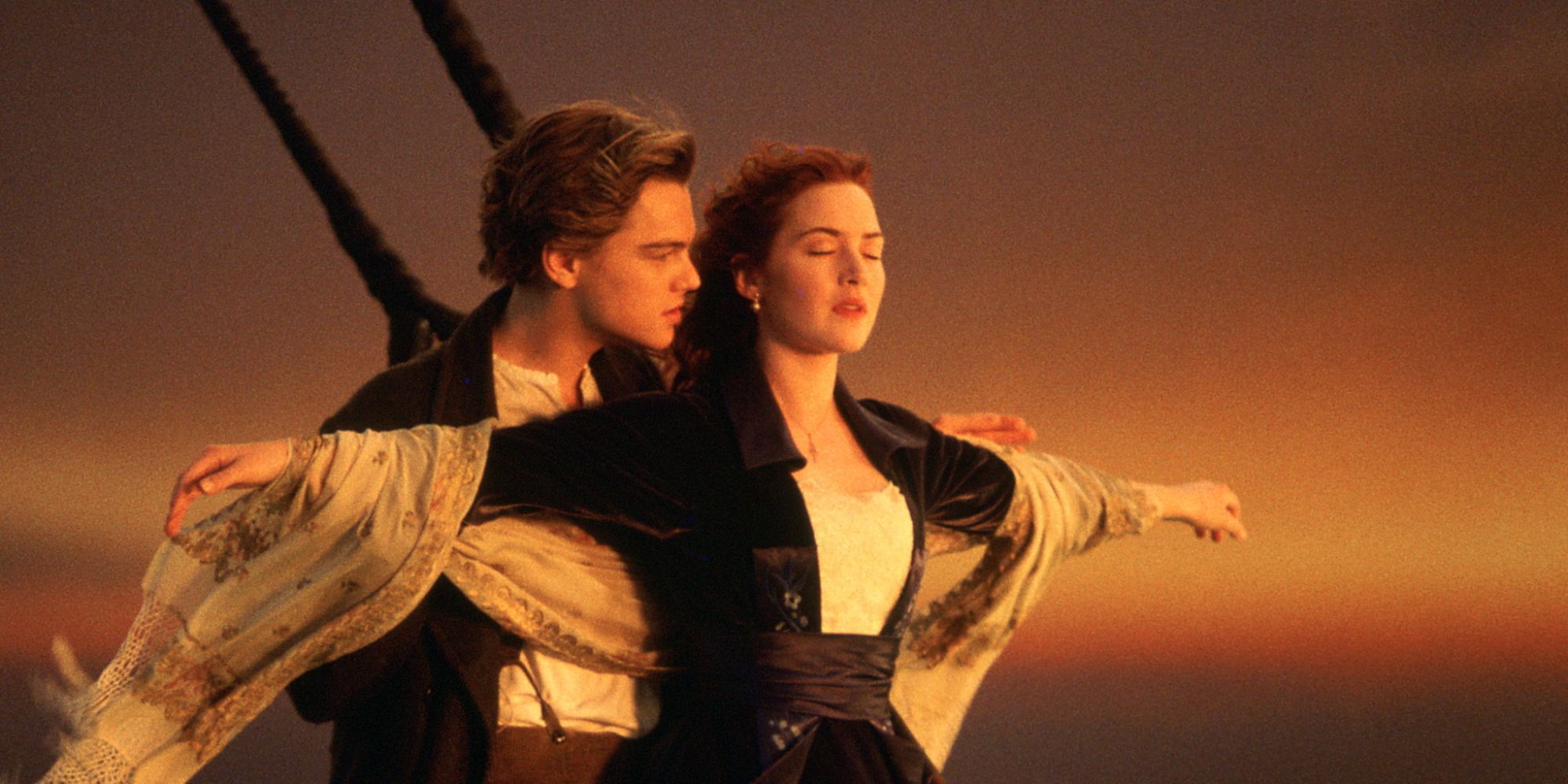
Based on the historical event of the RMS Titanic that sank in 1912, James Cameron’s Titanic incorporates both historical and fictionalized aspects, particularly focusing on the relationship between Jack Dawson (Leonardo DiCaprio) and Rose DeWitt Butaker (Kate Winslet), who, despite being of different social classes, fell in love during the tragic voyage. This powerful mixture of love and tragedy made the film akin to a modern-day Shakespearian story, a legacy that the Academy Awards praised as such.
On top of becoming one of the highest-grossing movies in history, Titanic received a staggering 14 nominations at the 70th Academy Awards. Not only did the film tie the record for the most nominations ever received by a single film, but it also won 11 out of its 14 nominations, which made it only one of two films (the only other film to achieve this was Ben-Hur at the time) to hold the title for the most awards won by a single film. Over 25 years after its release, the film has continued to age gracefully, as it's easy to see it as one of the most impactful and important films of the modern era.
Release Date November 19, 1997
Director James Cameron
Runtime 194 minutes



:quality(85):upscale()/2023/09/21/802/n/1922729/d9a11ce9650c8850437280.00070284_.jpg)

:quality(85):upscale()/2024/10/29/957/n/1922441/c62aba6367215ab0493352.74567072_.jpg)
:quality(85):upscale()/2024/10/30/711/n/1922441/c62313206722590ade53c4.47456265_.jpg)

 English (US) ·
English (US) ·